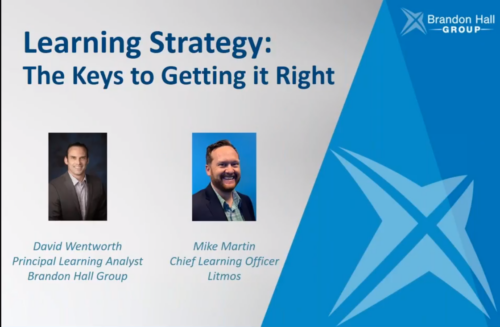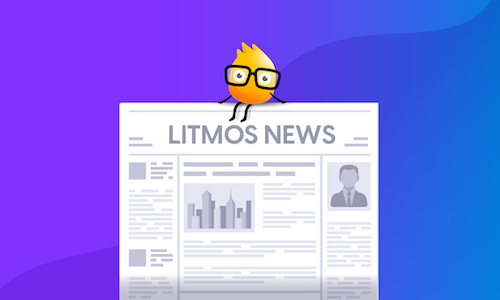Your learning strategy: Keys to getting it right
Did you know that fewer than half of companies say their L&D strategy is effective in helping them achieve their business goals? A bit surprising, isn’t it, especially when driving business goals is one of the main reasons the L&D strategy should even exist.
Consider these numbers from the Brandon Hall Group Learning Strategy survey:
- Nearly 79% of companies said it’s either “important” or “critical” to align the learning strategy with business goals.
- Yet, 52% of companies reported being only “somewhat” or “not at all” ready to do so.
How can those numbers reconcile?
Litmos Chief Learning Officer, Mike Martin, teamed up with David Wentworth, Principal Learning Analyst with Brandon Hall Group, to take a closer look at this phenomenon, via the lens of Brandon Hall Group’s Learning Strategy Survey.
Click here to watch the recorded webinar session or just keep reading for an overview of what we discovered.
First, even if based solely on the two data points above, it’s clear that organizations need to rethink how their learning strategy supports their business goals. Add to that the challenges of actually attaining those business outcomes in the face of shifting priorities, new technologies, and new modalities.
What are the leaders doing?
When Brandon Hall Group examined the practices of those organizations with highly effective learning strategies and how they use learning to impact the business, a few notable areas stood out.
- Getting allies on the strategy — Leaders form partnerships with vendors, peers, and ideally, get executive support to drive the learning strategy.
- Less weight on formal training, versus informal and experiential (using the 70/20/10 Blended Learning model) — A strong majority of leaders reported increasing their focus on informal and experiential learning.
- Improvements to formal learning that include greater interactivity and engagement, and online courses that are easy to navigate and available on a variety of devices.
- Enhanced informal learning that includes the ability to generate, share, and comment on content, as well as an established coaching program.
- A fresh approach to experiential learning that offers special projects or “stretch assignments” that allow on-the-job training in a no-consequence environment (i.e. “it’s OK to fail”).
- New focus on learner experience tailored to specific needs and using technology such as Augmented Intelligence to create meaningful paths.
- Identifying and defining competencies such as employee development that directly drive business outcomes.
For the complete examination of Brandon Hall Group’s Learning Strategy Survey, please watch the webinar. It’s a very valuable and engaging use of an hour with lots of insights to propel you successfully through 2018.






